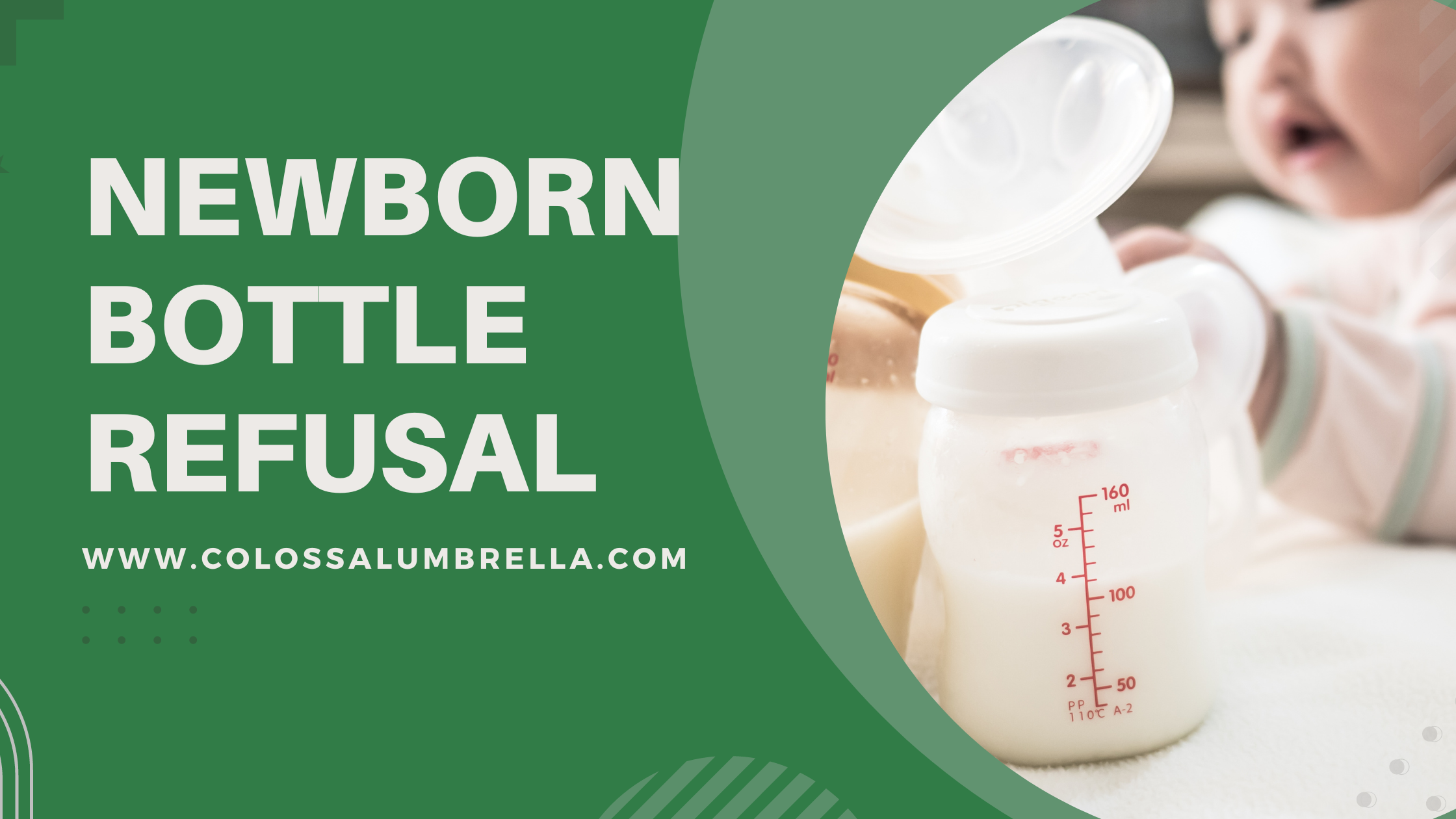Contents
When your baby fights bottle but hungry, it can be a confusing and frustrating experience for parents. Understanding the possible reasons behind this behavior can help you find solutions and ensure your little one gets the nutrients they need. In this comprehensive guide, we will explore various reasons why a baby fights the bottle but is still hungry and provide practical tips to address the issue.
Reasons Why Your Baby Fights Bottle but hungry
There are numerous reasons why a baby might fight the bottle even if they are still hungry. In this section, we will discuss some of the most common reasons and provide advice on how to handle these situations.
Subscribe to my blog for Parenting tips that will make you feel like a pro, and get access to exclusive free Printables that will keep your little ones busy and happy!
Nipple Confusion
Nipple confusion can occur when a baby is used to breastfeeding and has difficulty adjusting to the different feel of a bottle nipple. This issue can be particularly frustrating for both the baby and the parent, as the baby may refuse the bottle despite being hungry.
Possible Solutions
- Introduce the bottle gradually, alternating between breastfeeding and bottle-feeding sessions.
- Experiment with different bottle nipple shapes and sizes to find one that closely resembles the mother’s nipple.
- Consistency in feeding routines can help minimize confusion for the baby.
Teething or Illness
When a baby is teething or unwell, they may be more likely to fight the bottle due to discomfort or pain. This can make feeding time a challenge, even if the baby is hungry.
Possible Solutions
- Offer a cold teething ring or cold washcloth for the baby to chew on before feeding to help alleviate teething pain.
- Consult with a pediatrician about appropriate pain relief medication or remedies for teething or illness-related discomfort.
- Be patient and offer comfort to your baby during this time; it is likely a temporary phase.
Slow Flow or Inappropriate Nipple Size
If the flow of milk from the bottle is too slow or the nipple size is not suitable for your baby’s age and sucking ability, they may become frustrated and fight the bottle.
Possible Solutions
- Ensure you are using an age-appropriate nipple size and flow for your baby.
- Experiment with different nipple flow rates to find the one that works best for your baby’s needs.
- Observe your baby’s feeding behavior and adjust the nipple size or flow rate accordingly.
Introduction of Solid Foods
As babies begin to explore and enjoy solid foods, they may be less interested in bottle-feeding. This can lead to a baby fighting the bottle even if they are still hungry.
Possible Solutions
- Offer the bottle before introducing solid foods during mealtime.
- Ensure your baby is still receiving adequate breast milk or formula alongside the introduction of solid foods, as these continue to provide essential nutrients for growth and development.
- Consult with your pediatrician about the appropriate balance of solid foods and milk intake for your baby’s age and development.
Sensitivity or Allergy to Formula or Breast Milk Components
A baby may fight the bottle if they are experiencing discomfort or pain due to a sensitivity or allergy to the components in their formula or breast milk.
Possible Solutions
- Consult with your pediatrician about the possibility of a sensitivity or allergy, and discuss appropriate dietary modifications for the breastfeeding mother or alternative formula options.
- An elimination diet can help identify potential allergens or irritants in the breastfeeding mother’s diet.
- If a formula allergy is suspected, consider transitioning to a hypoallergenic formula under the guidance of a pediatrician.
Change in Routine or Environment
A change in routine or environment can cause a baby to feel unsettled and resist feeding, even if they are hungry.
Possible Solutions
- Maintain a consistent feeding routine and environment as much as possible.
- If changes are unavoidable, try to introduce them gradually and provide comfort and reassurance to your baby during the transition.
- Make feeding time a calm and soothing experience, minimizing distractions and focusing on the bonding experience between the parent and baby.
Developmental Milestones and Distractions
As babies grow and reach developmental milestones, they may become more easily distracted and less interested in feeding, leading to a baby fighting the bottle but still hungry.
Possible Solutions
- Ensure a consistent and established feeding routine, providing predictability for your baby.
- Minimize distractions during feeding times, such as turning off the television, dimming lights, or finding a quiet space.
- Remain patient and understanding, as these developmental phases are temporary and will likely resolve on their own.
Acid Reflux or Gastrointestinal Issues
Discomfort from acid reflux or other gastrointestinal issues can cause a baby to fight the bottle even if they are still hungry, as feeding may exacerbate their discomfort.
Possible Solutions
- Consult with your pediatrician about appropriate treatment or management strategies for acid reflux or gastrointestinal issues.
- Offer smaller, more frequent feedings and ensure your baby is burped thoroughly after each feeding. Here are baby burping techniques
- Keep your baby upright for at least 20 minutes after feeding to help minimize reflux symptoms.
Bottle or Nipple Preferences
Some babies may develop a preference for a specific bottle or nipple type, leading them to fight the bottle if it does not meet their preferences.
Possible Solutions
- Experiment with different bottle and nipple types to find the one that works best for your baby.
- Be patient and give your baby time to adjust to a new bottle or nipple, but also be prepared to try different options if necessary.
- Ensure the bottle and nipple are clean and in good condition, as damage or residue can impact the feeding experience.

Swallowing Difficulties or Oral Motor Issues
Swallowing difficulties or oral motor issues can cause a baby to fight the bottle, as they may struggle to feed effectively and become frustrated or uncomfortable.
Possible Solutions
- Consult with your pediatrician about the possibility of swallowing difficulties or oral motor issues and discuss appropriate interventions or therapies.
- Consider working with a feeding specialist or speech-language pathologist to develop strategies and techniques to improve feeding efficiency and comfort.
- Be patient and supportive, as addressing these issues may take time and consistent effort.
People also Ask
Why is my baby hungry but not feeding?
There could be several reasons why your baby appears hungry but resists feeding. It could be due to teething or oral discomfort, developmental milestones, or even a preference for specific feeding positions or methods. It’s essential to observe your baby’s cues and seek solutions to address their feeding challenges.
Why is my baby struggling to drink a bottle?
Your baby might be struggling with bottle feeding for various reasons. It could be related to nipple flow rate or size, discomfort caused by teething or reflux, or an underlying feeding difficulty. Evaluating the bottle and nipple, trying different positions, and consulting a healthcare professional can help address the issue.
Why does my baby jerk when feeding?
Babies may exhibit jerky movements during feeding due to an immature nervous system or as a reflex action to regulate their intake. It’s usually normal and tends to improve with time. However, if you’re concerned, it’s always best to consult your pediatrician to rule out any underlying issues.
What are the signs of overfeeding a baby?
Overfeeding a baby can lead to discomfort and other issues. Signs of overfeeding include spitting up excessively, fussiness or irritability after feeding, rapid weight gain, and excessive gassiness. If you suspect overfeeding, consult your pediatrician to discuss appropriate feeding strategies for your baby.
How do you fix a refusal bottle?
Dealing with a baby who refuses a bottle can be challenging. Some strategies to fix this issue include ensuring a comfortable feeding environment, checking the nipple flow rate and size, experimenting with different bottle types or nipple shapes, and trying alternative feeding methods like paced feeding. If the refusal persists, seeking advice from a healthcare professional is recommended.
How can I relieve my baby’s gas?
Gas can be uncomfortable for babies. To help relieve their gas, you can try burping your baby during and after feedings, gently massaging their tummy in a clockwise motion, holding them in an upright position, or using techniques like bicycle legs. If the gas problem persists or causes distress, consult your pediatrician for further guidance.
[show_boutique_widget id=”1210068″]
Conclusion
When a baby fights the bottle but is still hungry, it can be a challenging and frustrating time for both parents and their little ones. Understanding the potential reasons behind this behavior and implementing appropriate strategies can help you address the issue and ensure your baby receives the nutrients they need for healthy growth and development. Always consult with your pediatrician about any concerns you may have regarding your baby’s feeding habits, as they can provide guidance and support tailored to your baby’s individual needs.
I would stay connected and keep you updated with parenting tips, pregnancy guides, creative ideas, easy crafts, and Free Printables. Subscribe to Colossalumbrella to get new ideas delivered to your inbox. Follow me on Facebook, Pinterest, Twitter, and Instagram.

2 thoughts on “10 Reasons Baby fights bottle but hungry and easy solutions”